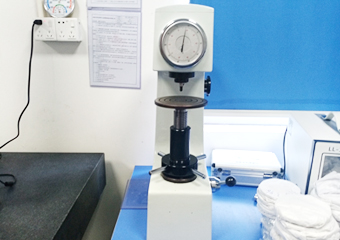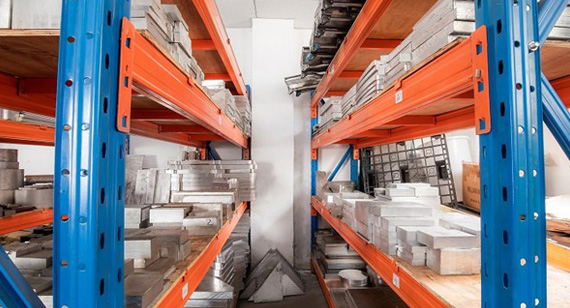15 years one-stop China custom CNC machining parts factory

Hey there I’m VMT Sam!
With 25 years of CNC machining experience we are committed to helping clients overcome 10000 complex part-processing challenges all to contribute to a better life through intelligent manufacturing. Contact us now
 120 |
Published by VMT at Apr 22 2024
120 |
Published by VMT at Apr 22 2024
In the field of CNC machining, the hardness of parts is a crucial indicator directly related to their performance, lifespan, and safety. Therefore, understanding and mastering the factors that affect the hardness of CNC machined parts is of paramount importance for CNC machining manufacturers. This article will delve into the main factors determining the hardness of CNC machined parts, aiming to provide readers with comprehensive and in-depth knowledge.
Firstly, it's essential to clarify the concept of hardness for CNC machined parts. Hardness refers to the material's resistance to local deformation, especially plastic deformation, indentation, or scratching. For CNC machined parts, hardness not only affects their wear resistance and impact resistance but also directly relates to the accuracy and surface quality of the parts. Therefore, controlling the hardness of parts during CNC machining is a crucial task.

So, what are the factors that determine the hardness of CNC machined parts? Here are several key aspects:
Material Type and Purity
Different types of materials have different hardness characteristics. For example, in metal materials, cast iron typically has lower hardness than steel, while aluminum has lower hardness than copper. The purity of the material also significantly affects its hardness. Generally, materials with higher purity tend to have higher hardness because they contain fewer impurities, resulting in a more complete crystal lattice structure and better mechanical properties.

Machining Process and Heat Treatment
The machining process is one of the key factors affecting the hardness of CNC machined parts. Machining parameters such as cutting speed, feed rate, and cutting depth directly influence the material's plastic deformation, thereby affecting hardness. For example, excessive cutting speed during machining can elevate the cutting temperature, leading to material softening and reducing part hardness. Conversely, too slow cutting speed may result in excessive work hardening of the material, increasing part hardness.
Heat treatment is a crucial means of altering material hardness. By controlling the temperature and time of heat treatment, the material's structure and properties can be changed, thereby adjusting the hardness of parts. Generally, heat treatment tends to increase the hardness of materials, but the extent of its impact on hardness varies depending on the specific heat treatment process.

Material State
Different states of the same material, such as solution treatment and aging treatment, can result in different hardness levels. The material state is influenced by factors such as cooling rate and annealing temperature. For instance, rapid cooling may produce a fine-grained structure, thereby increasing hardness, while annealing treatment may relieve internal residual stresses in the material, reducing hardness.
Tooling and Cutting Parameters
The condition of the tooling and cutting parameters also influences the hardness of CNC machined parts. Factors such as tool edge radius, wear degree, and rake angle affect cutting forces, friction forces, and heat effects during machining, thereby indirectly influencing part hardness. Moreover, the selection of cutting parameters is crucial. Proper combinations of cutting speed, feed rate, and cutting depth can minimize plastic deformation, reduce cold work hardening, and maintain stable part hardness.
Technological Expertise of CNC Machining Manufacturers
The technological expertise of CNC machining manufacturers also plays a significant role in part hardness. Manufacturers with high technical expertise can accurately control machining parameters and heat treatment processes to ensure the stability and consistency of part hardness. Additionally, they can adjust machining schemes flexibly according to customer requirements and material characteristics, achieving personalized customization.
In conclusion, the factors determining the hardness of CNC machined parts are multifaceted, including material type and purity, machining process and heat treatment, material state, tooling and cutting parameters, and the technological expertise of CNC machining manufacturers. In actual production processes, CNC machining manufacturers need to consider these factors comprehensively and optimize machining processes and parameter control to achieve precise hardness control, meeting the diverse needs and application scenarios of different customers.
With the continuous development and advancement of CNC machining technology, it is believed that in the future, we will gain a deeper understanding and mastery of the factors influencing the hardness of CNC machined parts, providing stronger support for the development of the manufacturing industry.
Ready To Start Your Next Project?
Get Instant Quote

Request a Free Quote
Send us a message if you have any questions or request a quote. We will get back to you ASAP!